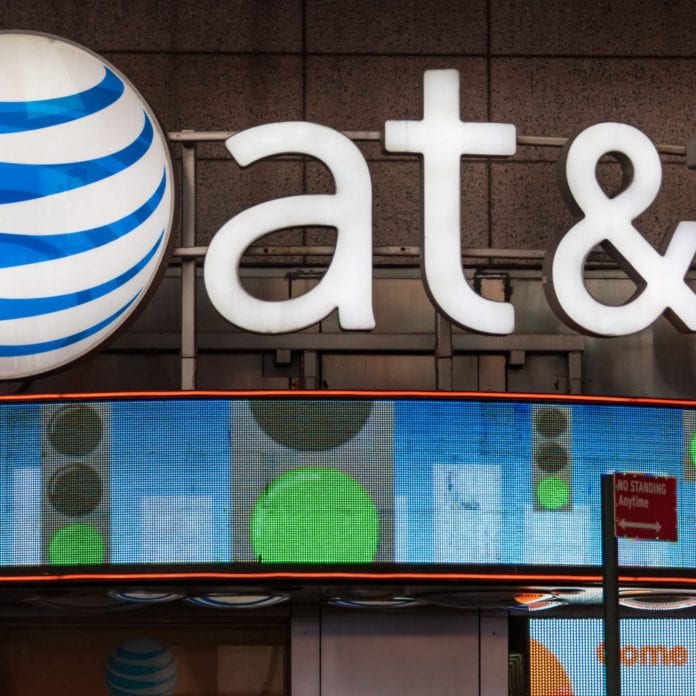Analysts ask: What’s the deal with Dish?
AT&T saw growth in all three of its areas of focus during the second quarter: Wireless, fiber and HBO Max, but it was the newly announced wholesale deal with Dish Network that drew analysts’ attention during the company’s quarterly call.
AT&T’s total revenues were up 7.6% to $44 billion for the quarter, and profits for the quarter were $1.5 billion, up from $1.2 billion in the year-ago period. Capital expenditures during the quarter were $4 billion.
Among the key reported results:
-In its wireless business, AT&T saw 1.156 postpaid net adds including 789,000 postpaid phone net adds and 174,000 prepaid net additions. It matched its lowest-ever postpaid phone churn rate of 0.69%, amid wireless revenues that were up 10.4% year-over-year. Service revenues were up 5% from the year-ago quarter and equipment revenues were up nearly 32%.
-In its consumer wireless business, the telco reported 246,000 net additions for AT&T Fiber, with a penetration rate of more than 36%. Revenues in consumer wireless were up 2.9%, with broadband revenues up 8.3%.
-WarnerMedia — which AT&T is in the process of spinning off and combining with Discovery, in a $43 billion deal that will help AT&T pay down debt — saw 2.8 million domestic subscriber additions for HBO and HBO Max and revenues up 30.7% to $8.8 billion; AT&T now expects to see between 70-73 million HBO Max/HBO subscribers by the end of this year.
The recently announced 10-year wholesale deal with Dish drew a significant amount of interest from analysts during AT&T’s quarterly call. Dish plans to move its customer traffic — including customers of its Boost Mobile, Ting Mobile and Republic Wireless brands — to AT&T’s network instead of T-Mobile US’; Dish has been feuding with T-Mobile US over the shutdown of T-Mo’s 3G network.
Wholesale relationships have been part of AT&T’s business for years, AT&T CEO John Stankey reminded analysts, and it is an important element of of it tries to maintain “balance” in wholesale versus retail traffic, he said. “I believe that Dish is going to be a company that, in their business model and what they chose to do moving forward, is going to be successful one way or another,” Stankey said. “When somebody is going to be successful, it’s always nice for us to be successful along with them.” He said that AT&T believes that it can both make a return on the relationship with Dish “Given the nature of their business and where they are in its maturity, and what our interests are in ultimately aggregating as much traffic on our networks as possible, I am looking forward to demonstrating to Dish that we can be a good partner and that we can carry the right kind of traffic and we can do things to help them grow their infrastructure over time in parts of our network where they may not have ready access to infrastructure, that we can ultimately support them with. I think that’s a good thing for AT&T over the long haul considering the nature of our business … and the balance that we like to keep between retail and wholesale traffic. …
“I don’t think anybody around here is upset about taking $500 million a year out of a competitor’s pocket, either,” added Stankey. (The $5 billion, 10-year Dish deal grants AT&T at least $500 million a year in wholesale revenues.)
Meanwhile, AT&T continues to pare down its business areas of focus, particularly on the entertainment side, in favor of fiber and wireless. AT&T announced yesterday that it has struck a deal to sell its most of its Latin American Vrio operating unit to global private holding company Grupo Werthein. Vrio provides primarily video services, including DirecTV services and broadband and has 10.3 million subscribers across 11 countries in Latin America and the Caribbean; Vrio’s broadband operations in Colombia and AT&T’s interest in Sky Mexico are not included in the transaction.
AT&T had classified Vrio as held-for-sale ahead of the transaction and reported the asset group at “fair value less cost to sell”, which resulted in an impairment of $4.6 billion; that included $2.1 billion in accumulated foreign currency adjustments. The two companies expect the transaction to close in early 2022.
Vrio joins the list of assets that AT&T has at least partially divested from, including (among others) WarnerMedia, the pending sale of its mobile games studio to Electronic Arts for $1.4 billion and its spin-off of DirecTV in a deal with TPG.
“We positioned each of our three major businesses — AT&T Communications, WarnerMedia, and DirecTV — the right capital structure, the right assets, the right management team, and in the case of the latter two, the right partners to optimize the returns to drive material value creation going forward,” said Stankey on the quarterly call. “These decisions were not easy. And in some cases, they compelled us to rethink how to best deliver returns to our shareholders … As our second quarter results demonstrate, the momentum in our strategic areas of focus is real, supporting our view that we have the right business strategy and capital structure in place for longer-term success.”

